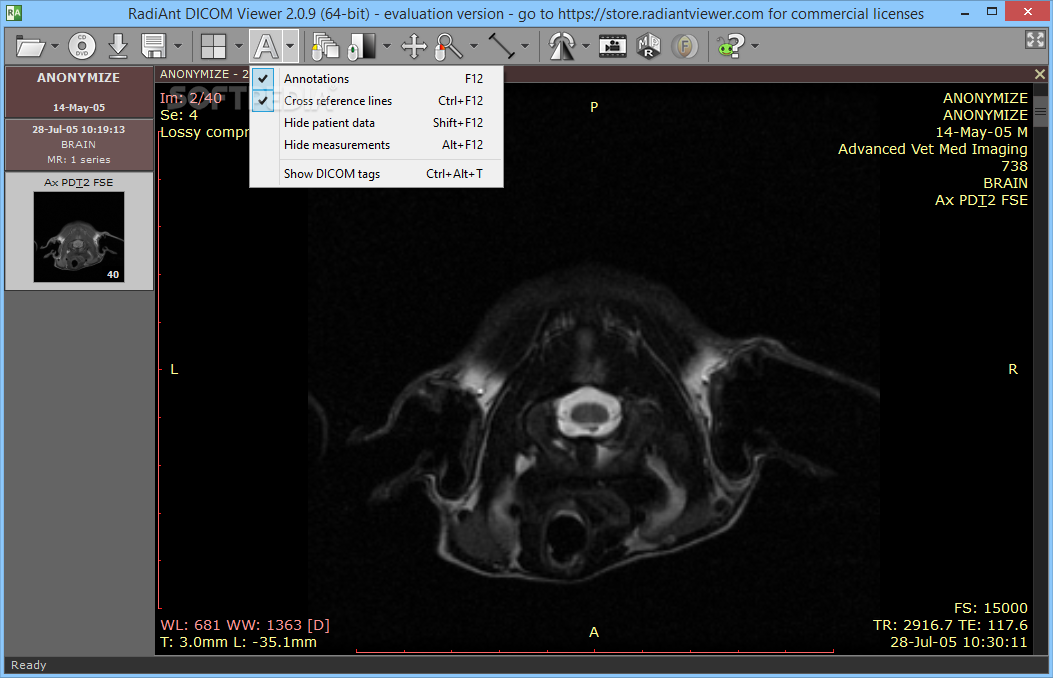Dicom Pacs Cube Viewer Download For Mac
Posted : admin On 17.03.2020OsiriX for Mac displays data obtained from medical equipment such as PET, CT, and MRI scans in up to five dimensions. The trial edition, which serves as a base for the certified version, is equipped with everything a medical professional needs to look at scans and interpret them.
There is even a patient database for keeping track of multiple individuals. Even though OsiriX for Mac will run on pretty much any hardware, having a multiprocessor machine will produce better results, especially when working in three or more dimensions and using advanced features like 3D tissue rendering. When adding patient records, you can either copy all the information to the database, or just link to it to save disk space. The database, itself, can be searched, filtered, and sorted, and reports can be generated for each patient. Individual entries can be shared via e-mail, DVD, or by manually exporting them out of the application as video material or as DICOM files. Other notable features are the anonymization of records, wireless transmission of data to another instance of the app, and full support for plug-ins that extend the app's capabilities. If you're a medical student or practitioner, you should definitely try OsiriX for Mac; it's an app that forms the foundation for the FDA-approved edition used by many medical institutions.

Dicom Pacs Cube Viewer Download For Mac Windows 10
But if you're a casual user who just wants to see what medical software looks like, this app might overwhelm you.
K-PACS offers a Free to download DiCOM Server and a DiCOM viewer. The author notes that this can not be used for diagnostic purposes, however it’s a nice free tool to use. K-PACS Server. Store SCP (Service Class Provider) K-PACS Viewer Server connection and file import/export:. Query/Retrieve SCU (Service Class User) on patient, study and series level. Move SCU.
Store SCU from local K-PACS database or external DICOM data (e.g. CDs) to target archives. Supported DICOM data compression: uncompressed, JPEG-Lossless (J1), JPEG-lossy (J4). Export of native DICOM data (with option for anonymization) e.g.